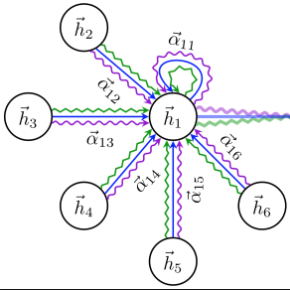Human mobility prediction is a fundamental task essential for various applications, including urban planning, transportation services, and location recommendation. Existing approaches often ignore activity information crucial for reasoning human preferences and routines, or adopt a simplified representation of the dependencies between time, activities and locations. To address these issues, we present Hierarchical Graph Attention Recurrent Network (HGARN) for human mobility prediction. Specifically, we construct a hierarchical graph based on all users' history mobility records and employ a Hierarchical Graph Attention Module to capture complex time-activity-location dependencies. This way, HGARN can learn representations with rich contextual semantics to model user preferences at the global level. We also propose a model-agnostic history-enhanced confidence (MaHec) label to focus our model on each user's individual-level preferences. Finally, we introduce a Recurrent Encoder-Decoder Module, which employs recurrent structures to jointly predict users' next activities (as an auxiliary task) and locations. For model evaluation, we test the performances of our Hgarn against existing SOTAs in recurring and explorative settings. The recurring setting focuses more on assessing models' capabilities to capture users' individual-level preferences. In contrast, the results in the explorative setting tend to reflect the power of different models to learn users' global-level preferences. Overall, our model outperforms other baselines significantly in the main, recurring, and explorative settings based on two real-world human mobility data benchmarks. Source codes of HGARN are available at https://github.com/YihongT/HGARN.
翻译:人类流动预测是各种应用的基本任务,包括城市规划、交通服务和地点建议。现有方法往往忽视对于推理人类偏好和例行做法至关重要的活动信息,或采用简化的时间、活动和地点之间依赖度的表示方式。为了解决这些问题,我们为人类流动预测提供等级图形关注经常网络(HGARN) 。具体地说,我们根据所有用户的历史流动记录建立一个等级图表,并使用一个分级图表关注模块来捕捉复杂的时间-活动-地点依赖性。这样,HGARN就可以在全球层面以丰富的背景语义来学习模拟用户偏好。我们还提出了一个模型性历史-强化信心(MAHec)标签,将我们的模型侧重于每个用户的个人个人层面偏好。最后,我们引入了一个经常结构,以共同预测用户的下一个活动(作为辅助任务)和地点。对于模型评估,我们HGARN可以比现有的SATA在经常性和探索性用户层面的描述性能。在常规和探索性总体偏好中,经常性的用户将更多的评估数据定位到不同层次的模型。




